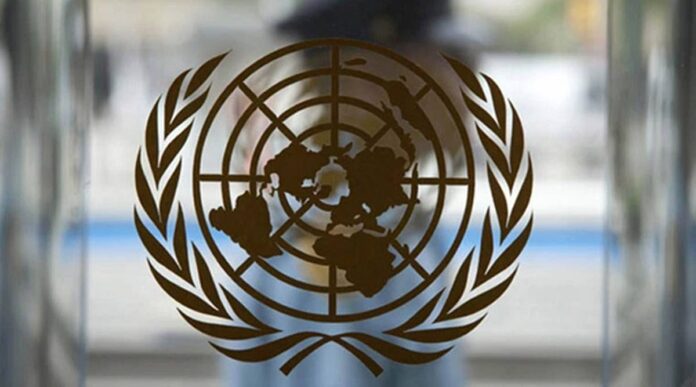On 14 February 2022, India participated in the Annual Debate of the UN Special Committee on Peacekeeping Operations, or the C34. The C34 was formed in 1965 as an entity under the 4th Committee of the General Assembly with 34 member states; it now consists of 147 member states. As a longstanding member of the C34, India has had an opportunity to contribute to several important discussions on matters pertaining to peacekeeping and to be a party to the recommendations made by the Committee.
By Arpita Anant
This year’s intervention by India highlighted the need for optimum use of technology in aid of peacekeeping operations, setting of mandates in consultation with troop contributing countries (TCCs), the need to keep missions time bound, the caution required in adopting new doctrines of peacekeeping, ensuring accountability for crimes against peacekeepers and the need to limit post-deployment caveats to ensure operational successes.
The C34 is one among the many UN forums whose deliberations contribute to the governance of peacekeeping. The notable others are the Security Council, the 4th Committee of the General Assembly through its annual “Comprehensive Review of the Whole Question of Peacekeeping Operations in all their aspects”, the 5th Committee which debates all financial matters related to peacekeeping and the 6th Committee which discusses legal matters in relation to peacekeeping. Over the decades, it is through participation in these forums that India has contributed to the governance of peacekeeping.
India and Peacekeeping in Security Council
Indian interventions on the subject of peacekeeping in the Security Council are significant because even when it was not a non-permanent member of the Council, India requested to be a party to such discussions. India’s engagement is a testimony to its abiding interest in the subject and the desire to influence the workings of the peacekeeping mechanism in the most influential of the forums in the global governance of peacekeeping. In the Security Council, first, India has supported the basic principles of peacekeeping namely consent, impartiality and non-use of force. Second, India has been very vocal about the need for substantial consultations between the TCCs, the Security Council and the Secretariat. India has made the case for an enhanced role for the TCCs and also the police contributing countries (PCCs) by way of using their good offices and diplomatic engagement to bolster peace processes. Third, India was actively involved in debating the exit strategy from a peacekeeping operation.
In this context, India pointed out the negative fallouts of sudden exit from a theatre of conflict considering the proactive role played by peacekeepers in demobilisation, disarmament and rehabilitation, security sector reform, rule of law, basic governance, institution building and support to the democratic process. Fourth, India has evolved from a position of complete opposition to the involvement of regional organisations in peacekeeping to actually building the capacities of regional organisations, like the African Union (AU), to enable them to undertake peacekeeping. Fifth, India has been a strong votary of giving explicit mandates to peacekeeping troops to use force in defending the mandates when confronted with non-state armed groups and trans-border criminal networks. Sixth, India has been an ardent supporter of the safety of peacekeeping troops. Seventh, India suggested several ways in which the working of the Department of Peacekeeping Operations and the Department of Field Support could be improved. Eighth, India has been a strong votary of increasing the role of women in peacekeeping operations. Finally, India has engaged substantially with the issue of protection of civilians (POC) in armed conflict. India pointed to the need to place more troops on the ground to ensure the protection of civilians and provided several practical suggestions drawing on its peacekeeping experience for improving POC.
India and Peacekeeping in General Assembly
Different aspects of peacekeeping are discussed in the 4th, 5th and 6th Committees of the General Assembly and India has been actively participating in them. The 4th Committee holds an annual discussion on peacekeeping under the heading “Comprehensive Review of the Whole Question of Peacekeeping Operations in all their aspects”. In the 4th Committee, India was particularly vocal on matters pertaining to the resource–men, material, and financial–for UN peacekeeping operations. It supported the stationing of stand-by troops and rapid reaction forces to help in the timely deployment of peacekeeping missions. India recommended the pre-positioning of logistics and equipment for air and sea lift capabilities at Logistics Base in Brindisi, Italy to enable troops to deploy rapidly. Several important suggestions were made on effectively using civilian police for peacekeeping. India supported the setting up of a standing civilian police capacity in 2006 to start up civilian work in peacekeeping. Finally, India made a strong case for privileging political dialogue and setting in motion political processes rather than the conduct of stronger military action by peacekeeping forces.
In the 5th Committee of the General Assembly or the Advisory Committee on Administrative and Budgetary Questions (ACABQ), India made several interventions on matters pertaining to the financing of peacekeeping operations. These are particularly relevant in the context of the perennial shortage of funds for peacekeeping in the post-cold war years and the need to rationalise expenses. India gave several nitty-gritty suggestions on reducing the expenditure on completed missions by closing them fully, filling up administrative posts and vacancies in missions to ensure their proper functioning, consolidation of peacekeeping accounts, retaining cash balances from closed missions, and rates of reimbursement for troops and equipment that were contributed mainly by developing countries.
In the 6th Committee of the General Assembly or the legal committee, the issue of criminal accountability of UN officials and experts involved in peacekeeping missions has been discussed. Here, India advocated for immunity of the soldiers as accorded to them by the status of forces agreement signed with the troop contributing country before the commencement of every peacekeeping mission. India argued that those countries who were signatories to the ICC may allow their soldiers to be subject to its jurisdiction on an individual basis. In the context of rising cases of sexual exploitation and abuse (SEA) by UN troops, there was a demand for a separate convention governing such cases. While advocating a policy of zero tolerance towards such acts, India, however, argued against a separate convention for this purpose. India was in favour of using national laws on extraterritorial jurisdiction to deal with such cases and adoption of such laws where they were absent.
Conclusion
Given its critical nature, international peacekeeping may be regarded as one among the many global public goods like non-proliferation or climate change. Hence, it is desirable to have a robust regime to govern the issue. However, in the absence of it, discussions in the various forums of the UN remain the only way for countries and other stakeholders to contribute to the governance of international peacekeeping. Indian interventions are an effort in the direction.
This article first appeared in www.idsa.in and it belongs to them.








